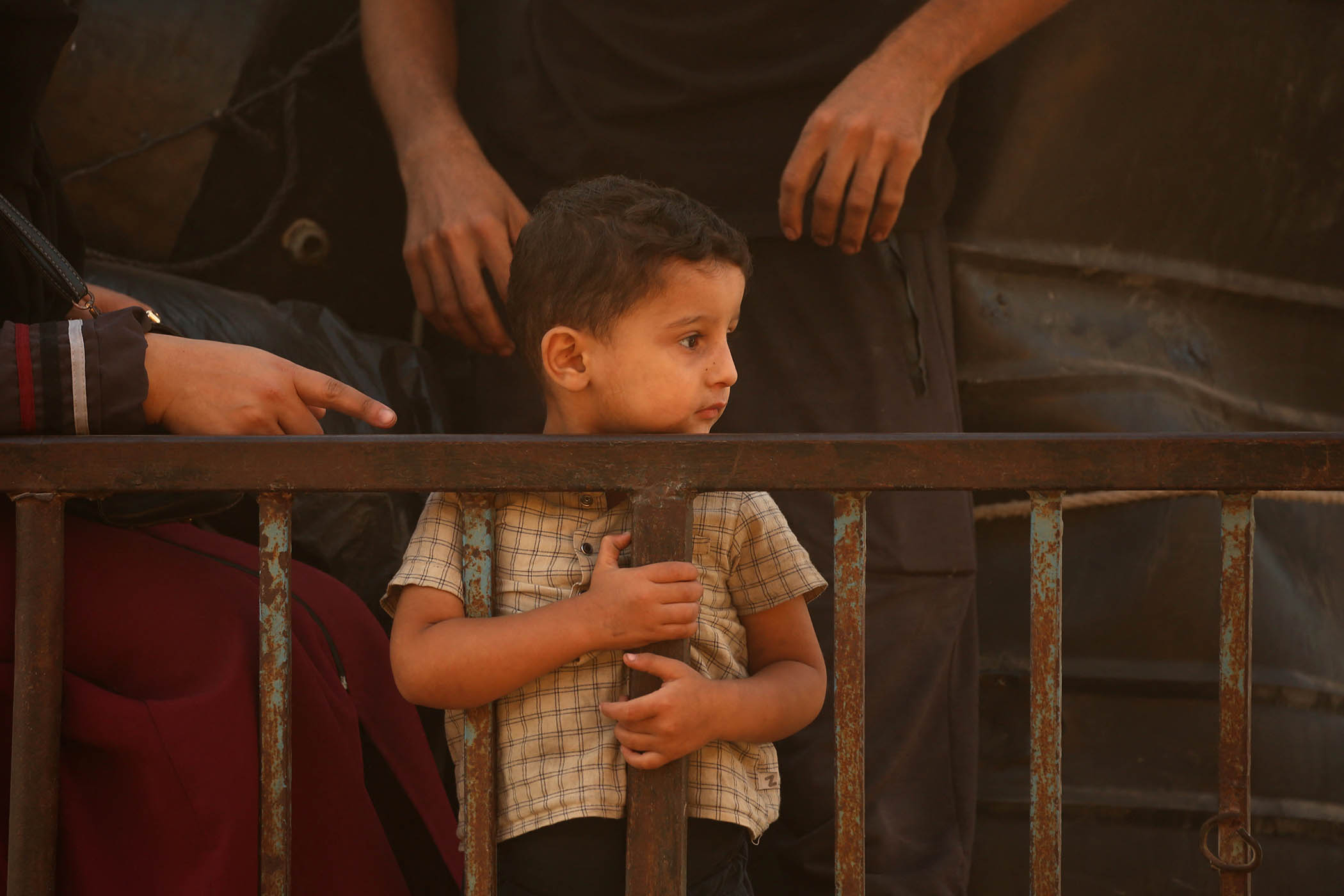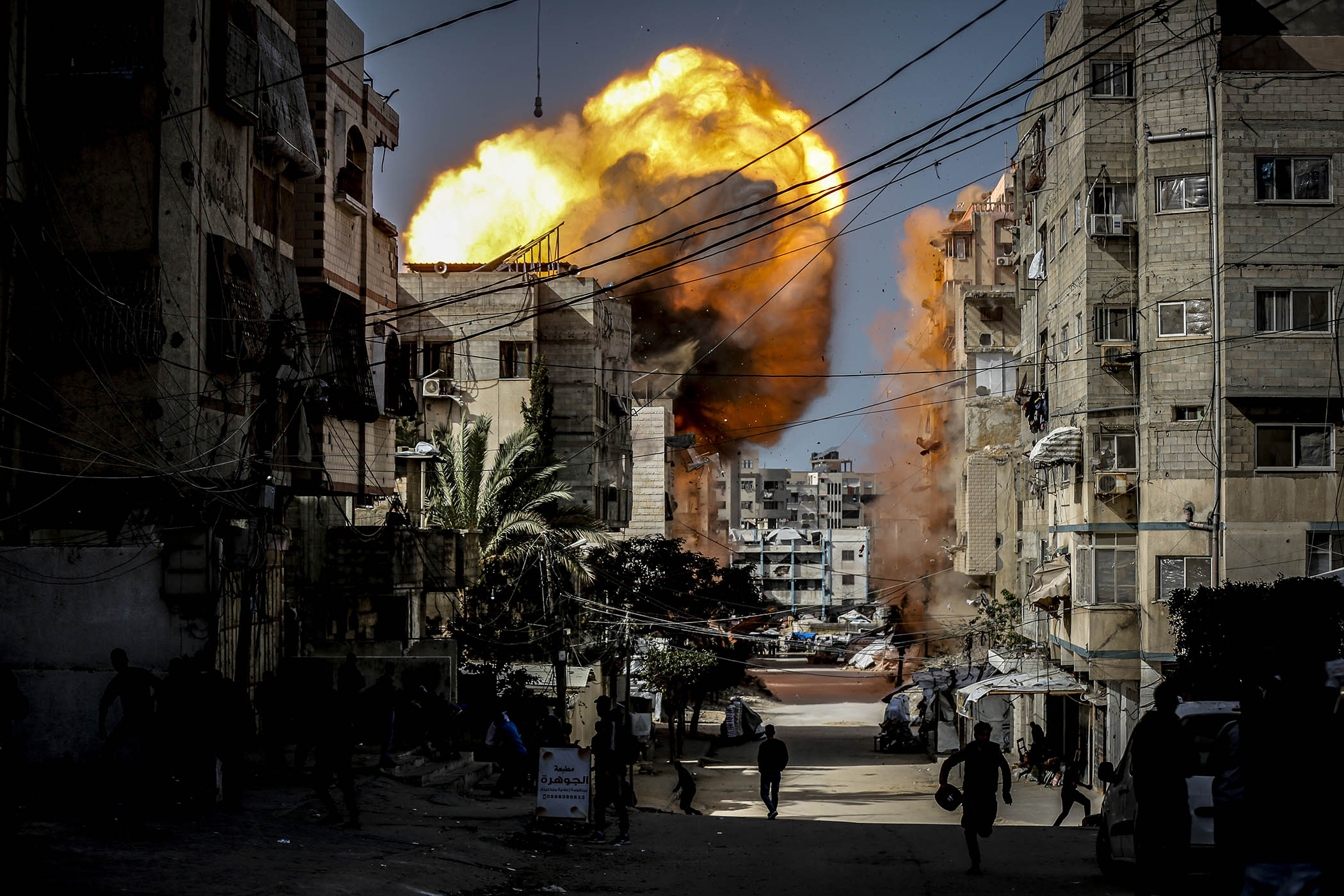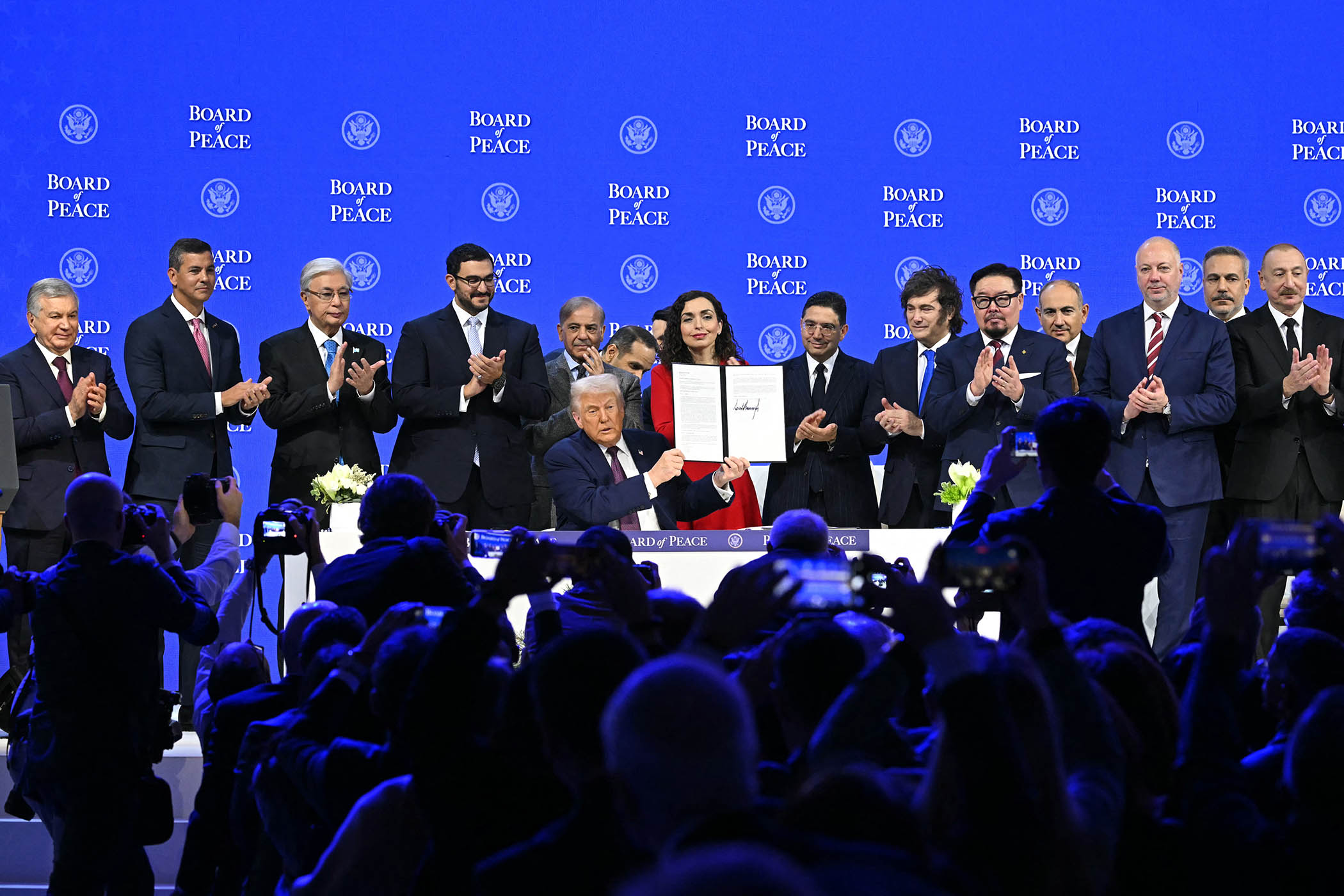If I were to distinguish the two years, I would say that the first year caused swings from horror and outrage to hope; emotions that oscillated more wildly than they do now. To begin there was the complete shock at the attack on Israel, then the heavy Israeli bombardment of Gaza that followed – every nerve-ending was fried with anxiety for friends – one was working in a hospital, another was trapped in an apartment in Gaza City with her two daughters; she left with them and later returned to work with a humanitarian organisation until this summer. Safe myself in London, I could not meet someone on the street without dragging them into my panic.
There was also the elation at the size and community of the mass demonstrations. The tears of joy and relief when listening to the judgment of the International Court of Justice in January 2024 in its ruling of South Africa v Israel as it found a plausible risk of genocide. That felt tremendous. During the second year of the genocide, I have been desensitised by the horror. We no longer have the luxury of either shock or expectation, but are focused on the specifics: trying to regroup, to sustain hope, to be tenacious. Despair, as Edward Said put it, is not a moral option.
I have been desensitised by the horror. We no longer have the luxury of shock or expectation
I have been desensitised by the horror. We no longer have the luxury of shock or expectation
We have witnessed in the past year how tactics used by Israel in Gaza are now being used further afield, not just in terms of the ongoing land grabs and expulsion of residents, but in the targeting of journalists in Lebanon and in Yemen. Israel stated its intention to raze part of the West Bank, and has launched the largest ground offensive there since 1967, turning bustling towns and refugee camps into rubble. The cruelty and sadism against Palestinians by Israeli soldiers is more pronounced than ever, more visible, widespread and legalised, from the reduction of the age of criminal responsibility for children to as young as 13, to the use of drones that play the sound of crying children to entice Gazans to leave their homes – only to be targeted by snipers. The systematic rape and torture of Palestinian detainees, of all genders and ages, has been painstakingly documented by the UN and caught on camera.
The army’s threats that come through in personal messages prior to assassinating journalists are malevolent in the extreme. There were those sent to 19-year-old Hassan Hamad, who moved away from his family to protect them before he was killed, his body later collected in bags. “If you continue spreading lies about Israel, we’ll come for you next and turn your family into [...] This is your last warning.” That was 5 October 2024. The way the population is being starved is mindblowing. “The idea,” my daughter was saying to me on the phone last night, “that there is baby formula at the bottom of the sea, which they were trying to take to starving children in Gaza. How do you justify that?”
I have always been, as a writer and as someone of partial Palestinian heritage (my father was wounded and forced out of Jaffa in 1948), very conscious of my privilege and that my language is English and that I live in London. I have a legal background, which makes me vigilant about curtailments of the rule of law. As one of my icons, the human rights lawyer Raji Sourani said to me at the annual Edward Said lecture in January, this is all that the Palestinians are asking for: “We don’t want to just be good victims.” The burden to narrate, to reclaim the past, to visualise the future, rests heavily on Palestinian writers, too often stuck in crisis mode as wave after wave of devastation engulfs us, or in a defensive mode as we are dehumanised into terrorists at worst, victims at best in the mainstream media.
We wrestle with trauma – near, far, intergenerational – while manifesting strength, hope, courage. Small strategic missteps can cost us our reputation and standing. Since October 2023, I have watched my two professional spaces, the legal and the artistic, struggle to ignore, silence or stand up to the challenge that this genocide has forced upon them.
My father’s favourite quote is from Dante’s Inferno: that the inner circles of hell are reserved for those who remain neutral at a time of crisis. The institutions in this country who claim neutrality at a time when the government is complicit in, at the least, a plausible risk of genocide, are complicit in their crimes.
For myself and for many around me, opposing this genocide vocally or legally opposing it now involves crossing a Rubicon of fear. We have tuned into our instincts of natural justice and that feels truly liberating, and humbling, to be a part of.
Selma Dabbagh is a British-Palestinian writer and lawyer. Her novel Out of It is set mainly in Gaza. Since October 2023, she has written a blog for the London Review of Books
Photograph by Eyad Baba/ AFP via Getty Images
Newsletters
Choose the newsletters you want to receive
View more
For information about how The Observer protects your data, read our Privacy Policy


